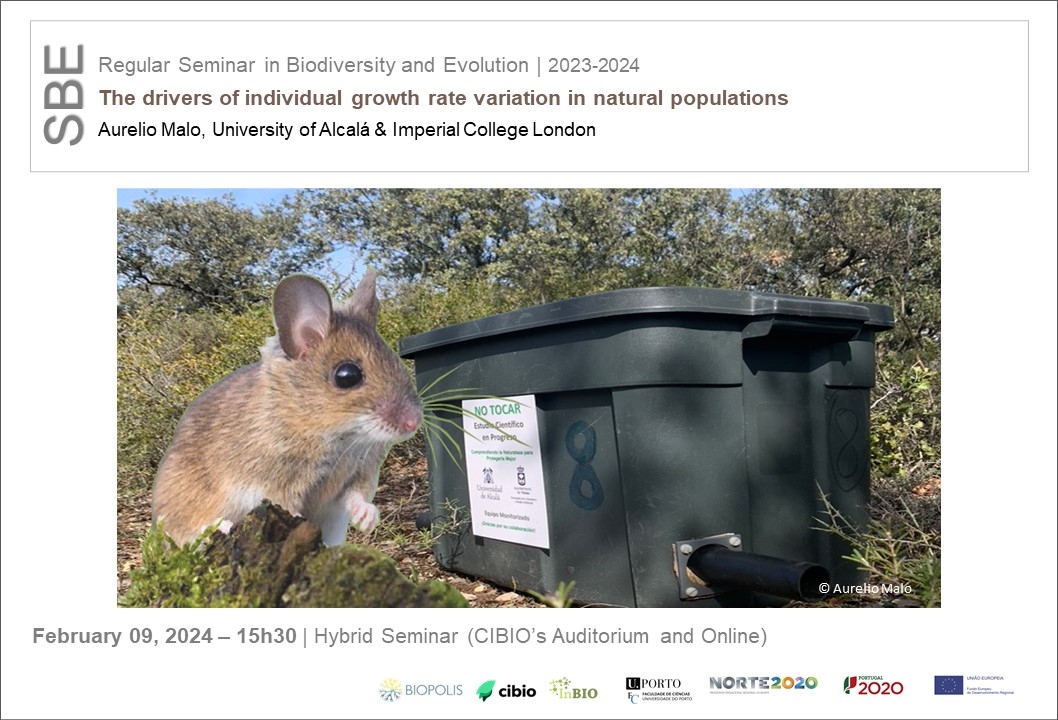The drivers of individual growth rate variation in natural populations
09 Feb 2024 - Aurelio Malo, University of Alcalá & Imperial College London | 15h30 | Hybrid Seminar

REGULAR SEMINAR IN BIODIVERSITY AND EVOLUTION
Individual growth rate is a key life-history trait with potentially important fitness consequences. However, little research has been conducted in endotherms to understand its ecological and individual-level drivers. This trait is expected to be under strong selection, as it allows for individuals to reach the reproductive phase sooner. It is also strongly linked with body size, one of the few traits that help us structure the diversity of life histories strategies and predict with an acceptable level of confidence where a species stands in the slow- to fast-pace continuum of life. Several individual- and ecological-level factors are expected to drive variation on individual growth rate, but little research has been devoted to exploring this question in natural populations. What is the role of weather? Does predation risk impact growth? What about population density? Can we detect the expected negative effect of inbreeding in the wild? Addressing these questions requires long-term ecological studies that allow collecting high resolution physiological, behavioral and life trajectory information from free-ranging individuals in wild populations, coupled with spatially explicit habitat data and environmental monitoring. This allows for the daily biotic and abiotic environment that each individual experiences throughout its life to be disentangled and for its consequences to be linked to individual-level variation in growth.
Aurelio Malo is a broadly trained evolutionary ecologist interested in how evolution has shaped phenotypic and life-history traits in mammals. His research lies at the interface of ecology, behaviour, physiology, and genetics. He focuses on identifying the drivers and fitness consequences of phenotypic traits and inbreeding on rodents, ungulates and carnivores. He runs long-term field studies on mammal populations recording phenotypic trait variation and individual life trajectories, to understand the population-level consequences of such variation. He is currently based at the University of Alcalá, where he heads GloCEE - Global Change Ecology and Evolution research group and holds an Honorary Lectureship at Imperial College London.
[Host: Zbyszek Boratynski, Biodiversity of Deserts and Arid Regions - BIODESERTS]
Click here to watch the seminar recording